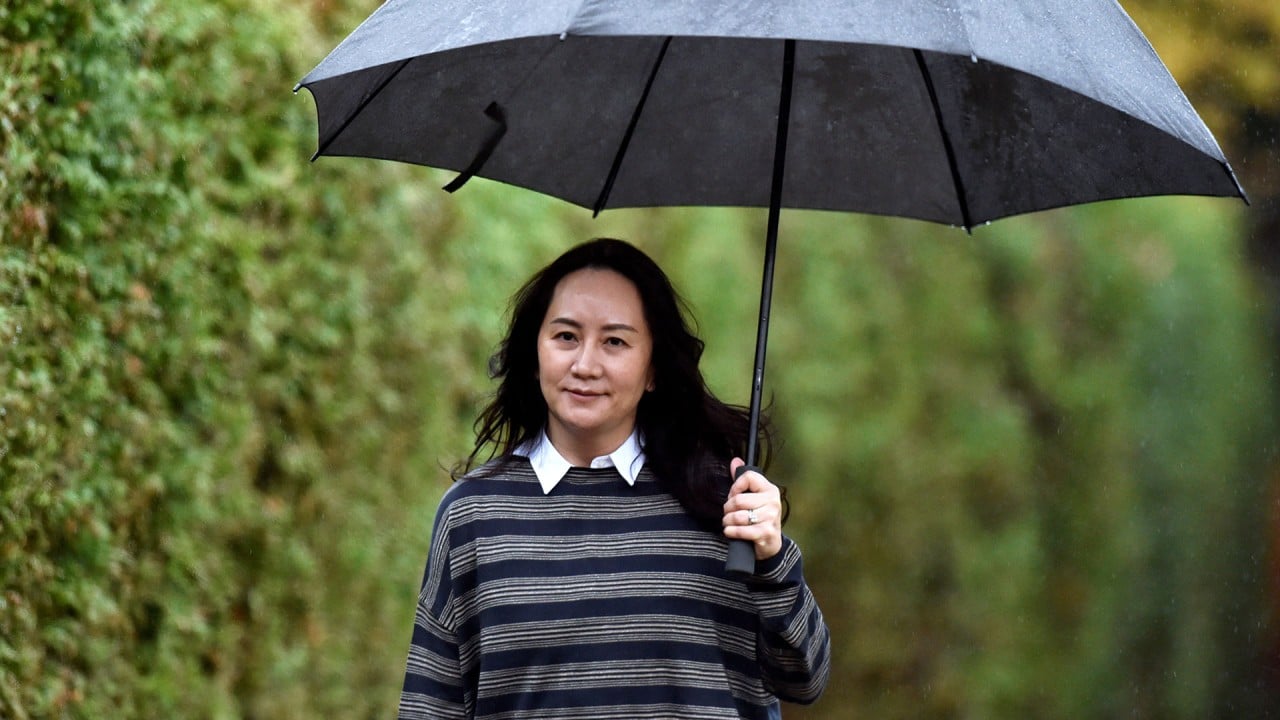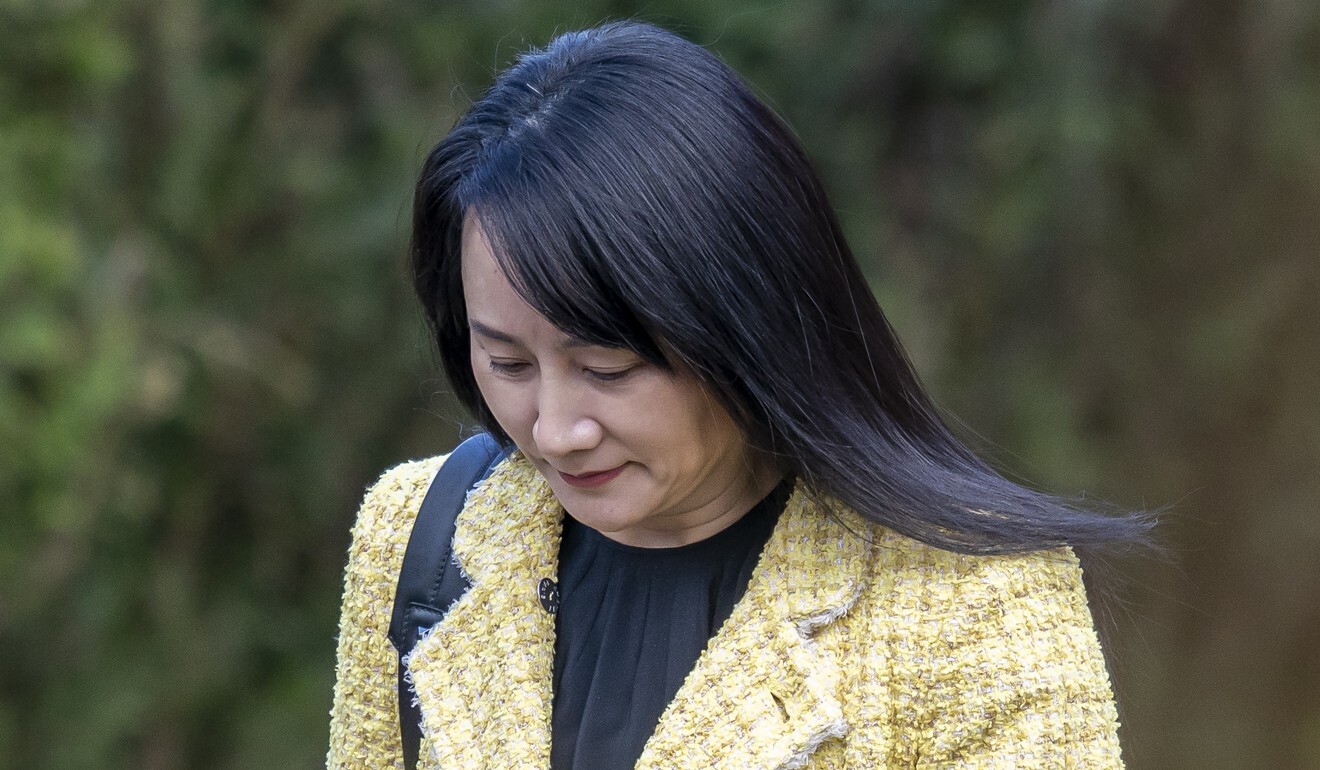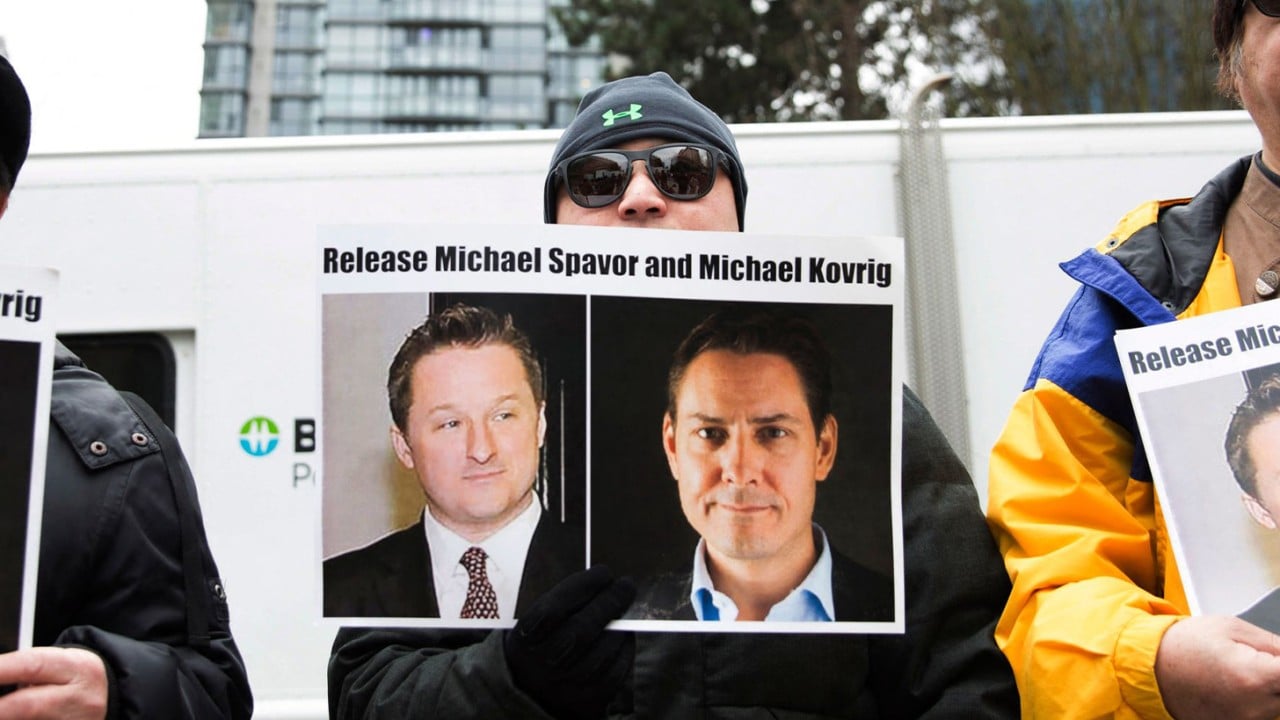
Meng Wanzhou’s Vancouver mansions are not owned in her name, extradition hearing is told
- A police affidavit resulting in the arrest warrant for Meng said she had no ties to Canada, and her lawyers say this misled a judge by not mentioning her homes
- But a government lawyer said police had no way of confirming Meng owned the houses since they are in her husband’s name
The judge who issued the warrant for Meng Wanzhou’s arrest at the request of US authorities was not misled about her connections to Canada, and although Meng owned two multimillion-dollar houses in Vancouver, neither were listed in her name, a Canadian government lawyer said on Friday at an extradition hearing for the Huawei executive.
Meng’s lawyers have cited her properties and her frequent travel to Canada as evidence that the urgency of her arrest was overstated by the Americans, and that a Royal Canadian Mounted Police (RCMP) constable’s affidavit in support of the warrant, which said Meng had “no ties” to Canada, was misleading.
But Canadian government lawyer John Gibb-Carsley told the Supreme Court of British Columbia that Meng’s name is not on the title of either of the homes, which are in the neighbourhoods of Dunbar and Shaughnessy and are valued at C$4.6 million (US$3.7 million) and C$13.7 million (US$10.9 million) respectively. Meng is currently living under partial house arrest in the latter property.
“These homes are owned in Ms Meng’s husband’s name. Her name does not appear,” Gibb-Carsley, representing US interests in the long-running extradition case, told Associate Chief Justice Heather Holmes.

Although RCMP Constable Winston Yep did not conduct title searches to look for any Vancouver homes owned by Meng, said Gibb-Carsley, had he done so, he would have not been able to confirm her ownership.
Yep swore his affidavit supporting the US arrest request before Madam Justice Margot Fleming on November 30, 2018. Yep would arrest Meng at Vancouver’s airport the next day, sparking a diplomatic firestorm that threw China’s relations with Canada and the US into disarray.
Meng, 49, the daughter of Huawei founder Ren Zhengfei, is accused of defrauding HSBC by lying to the bank about Huawei’s business dealings in Iran, thus putting the bank at risk of breaching US sanctions. She denies the charges.
Canadian officer ‘never sent Meng’s phone information to FBI’
Meng’s lawyers say her Canadian charter rights were abused by the US federal Bureau of Investigation and Canadian officers, when they engaged in a “covert criminal investigation” of her, delaying her arrest by three hours after she got off a flight from Hong Kong to allow border agents to question her and seize her electronic devices and passcodes on behalf of the Americans. The warrant had required that she be arrested “immediately”.
But the government lawyers say that no abuse took place and that neither the devices, their passcodes nor their electronic serial numbers were ever given to the Americans. Data on the devices – an iPhone, a Huawei phone, an iPad, Apple laptop and a memory stick – have not been accessed since their seizure almost 28 months ago, the government side has said.

The devices were seized and Meng was questioned as part of legitimate border procedures, not a criminal investigation, the government’s lawyers said.
As part of the alleged abuse, Meng’s lawyers said Fleming was tricked by Yep’s affidavit into approving the arrest warrant.
But Gibb-Carsley said that to describe Meng as having “no ties” to Canada was “defensible and not misleading”, and although Meng was a frequent traveller to Canada, this did not change the fact that she did so as a visitor.
“I’m not saying it would have been wrong to include that information … but it’s not a material omission,” said the government lawyer.
Delaying Meng’s arrest until after border exam ‘was not FBI conspiracy’
Gibb-Carsley said urgency was the critical factor to consider in the issuing of an extradition warrant, and only three facts were required to make the case for urgency to Fleming: Meng was a Chinese citizen, she lived in China, and she was travelling to Vancouver en route to a third country.
Another government lawyer, Marta Zemojtel, addressed note-taking practices by police and border officers involved in Meng’s treatment. These were “not perfect”, she said, but the evidence they provided could be relied upon, and the officers involved were credible witnesses.

04:43
How the arrest of Huawei CFO Meng Wanzhou soured China's relations with the US and Canada
In a written argument, the government’s lawyers said “there is no rule of law that says a police officer’s testimony, unsupported by notes, is inadmissible or deemed to be incredible or untrustworthy”.
Zemojtel said that no negative inference should be drawn about an absence of notes by Constable Yep about a meeting at the airport between RCMP officers and Canada border officers about how Meng’s impending arrival should be handled, although he subsequently recalled the meeting because of its importance.
Holmes interjected: “Isn’t the expectation that police will take note of important things?”
Turning to the Canada Border Services Agency (CBSA) officers, Zemojtel said they had different note-taking standards compared with the police, and among themselves their approaches varied too.
Reject Meng’s ‘exciting narrative’ of abuse, Canada government lawyer says
It was apparent, she said, that there was “no coordination” on what the police and the CBSA officers involved in the case mentioned in their notes, or did not mention, and this undermined the idea of a “cover-up”.
One officer, Chief Nicole Goodman, had testified that CBSA Regional Director General Roslyn MacVicar advised her not to create a timeline of the case because it might be disclosable, a version of events that MacVicar categorically denied.
But this was a result of “miscommunication and misunderstanding” between the two women, said Zemojtel, and not an attempt to conceal wrongdoing. In any case, Goodman continued to write emails and create other kinds of records about Meng’s case after the meeting with MacVicar, Zemojtel said.

Summing up the government side’s argument against Meng’s abuse claims, Robert Frater said her case failed the three-point test required to grant a stay on proceedings: namely, that Meng must have suffered harm to her right to a fair hearing, that there be no alternative to a stay, and that a stay must be weighed against the interest society had in a final decision being made on its merits.
“In our submission this motion must fail on its facts,” Frater said.
The hearing was adjourned until Monday.
For the past fortnight, the court has been hearing arguments about the abuse claim. Next week, Meng’s lawyers will embark on a new argument to get the extradition thrown out by claiming that the charges brought by the US are contrary to international law.
Another argument, that her case amounts to a political prosecution, was heard earlier this month, while a final argument, that the US misled the court with its summaries of the case, will be heard next month, before committal proceedings bring the hearings to a possible close in May.

02:11
Second Canadian, Michael Kovrig, on trial behind closed doors in China on spying charges
After Friday’s adjournment, Meng’s lawyers released a written reply to a government submission denying the US misled the court. The reply said the government lawyers failed to rebut evidence of misrepresentation, and “the line has been crossed here”.
“Over the past two decades, our courts have sent a strong message to Canada’s extradition partners: Canada is a country that abides by and enforces the rule of law. Allowing this matter to proceed further [would] condone conduct that is antithetical to the values upon which Canada’s justice system is based,” the reply said.
“This is one of the clearest of cases that calls for a stay of proceedings.”
Holmes must decide whether to free Meng or approve her extradition to face trial in New York. But appeals could drag out the process for years, and a final decision on whether to extradite her will rest with Canada’s justice minister.
Meng’s treatment has infuriated Beijing. In the days after her arrest, two Canadians, Michael Kovrig and Michael Spavor, were arrested in China; in recent days, they have undergone brief trials for espionage but no verdicts have been announced.
Canada’s government regards Kovrig and Spavor as victims of hostage diplomacy and arbitrary arrest.

